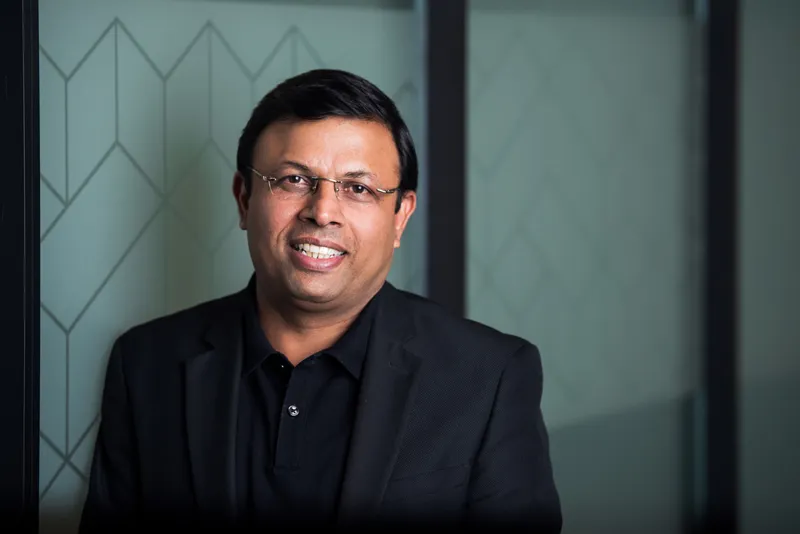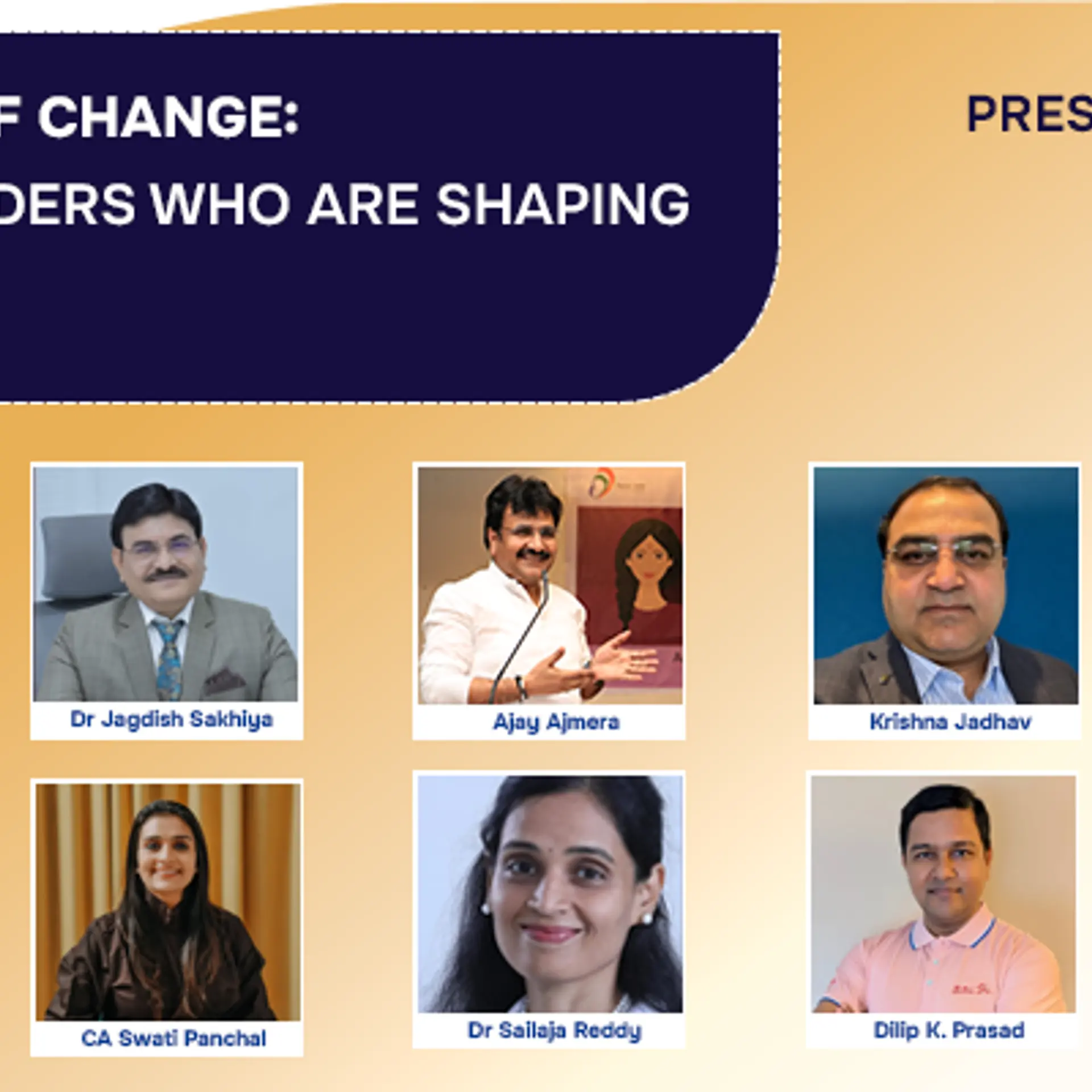1575367080560.png)
Flipkart
View Brand PublisherSkilling and scale: Flipkart's supporting the MSME growth in India's through the e-commerce revolution
Flipkart’s Rajneesh Kumar outlines the company’s vision for empowering MSMEs in India's booming ecommerce landscape, emphasizing skill development and scalability to foster self reliant businesses aligned with the 'Atmanirbhar Bharat' mission.
India's ecommerce landscape is witnessing a meteoric rise, poised to reach a staggering $150-170 billion by 2027. This digital revolution is not just transforming consumer habits but also empowering a vital sector of the Indian economy: micro, small, and medium enterprises (MSMEs). As the nation celebrates MSME Day on June 27, YourStory sat down for an engaging discussion with Rajneesh Kumar, Chief Corporate Affairs Officer at Flipkart Group, a leading force in India's ecommerce landscape.
has played a critical role in empowering MSMEs, providing them with the tools and resources they need to thrive in the digital age. In this exclusive interview, Kumar shares Flipkart's vision for the future of MSMEs, delves into the challenges these businesses face, and shares the innovative solutions Flipkart offers to cultivate a robust MSME ecosystem within its vast marketplace.
Edited excerpts from the interview:
YourStory: Flipkart has played a significant role in empowering MSMEs. Can you elaborate on the company's vision for creating a long-term, sustainable MSME ecosystem within the Flipkart marketplace?
Rajneesh Kumar: As a homegrown e-commerce company, Flipkart is dedicated to promoting sustainable growth in digital commerce by leveraging technology to democratize e-commerce and make it accessible, available, and affordable. Our vision is focused on creating inclusive growth opportunities, providing access to technology and financial resources, and establishing seller-friendly policies that promote sustainable development.

We've implemented programmes like ‘Samarth’ to equip MSMEs, artisans, SHGs, and women-led enterprises with the necessary training, resources, advanced analytics, and efficient supply chain solutions. Seller-friendly policies are another critical area of focus, ensuring a smooth experience for our MSME partners. We also actively engage with policymakers to advocate for a supportive environment that fosters ecommerce growth for MSMEs.
India's ecommerce sector is experiencing phenomenal growth, and is projected to reach $150-$170 billion by 2027. This presents a significant opportunity for MSMEs; a growing number are already capitalizing on this potential. Flipkart Samarth is a testament to our commitment in this area. Since its launch in 2019, the programme has empowered aspiring entrepreneurs and bolstered over 1.8 million livelihoods by providing the tools, knowledge, and national market access they need to flourish.
Our efforts have positively impacted more than 1.4 million sellers across Bharat. Flipkart's vision is to empower every Indian entrepreneur, by fuelling economic growth, innovation, inclusivity, and sustainability for a thriving MSME ecosystem.
YourStory: Millions of artisans and weavers are the backbone of India's economy, yet they often face challenges in reaching broader markets. How does Flipkart address the challenges MSMEs face in areas like logistics, credit access, and product standardization to ensure their continued growth on the platform?
Rajneesh Kumar: Flipkart recognises MSMEs' vital role in India's economy, mainly artisans and weavers who often struggle with market reach. We've implemented several initiatives to address these challenges and ensure their continued growth on our platform.
Firstly, we foster inclusivity by collaborating with governments and NGOs to empower rural entrepreneurs across India. We provide product listing and online business management training, unlocking new opportunities for artisans and self-help groups, especially women-led ventures.
Secondly, we've built a robust supply chain with an expanding network of fulfillment centres nationwide. This, along with our adoption of automation technologies, streamlines deliveries and bridges accessibility challenges in remote areas. Our PAN-India supply chain delivers over 120 million shipments monthly.
Thirdly, we prioritize seller success through our 'Flipkart EDGE' programme. The seller-first policies under this programme offer improved pricing recommendations, promotional support, rewards, fulfillment assistance, and dedicated seller support. These initiatives empower MSMEs with greater control and transparency, enhancing their cost-efficiency and sustainability.
Finally, we recently introduced a revised rate card to benefit sellers further. This card simplifies shipping costs, offers competitive rates. It furthers our commitment to driving seller growth and enhancing customer experience on the platform.
YourStory: Flipkart Samarth's 'Crafted by Bharat' initiative offers a unique opportunity to showcase Indian heritage. How does Flipkart strategically integrate these sales events into the overall Samarth programme to empower artisans in the long term, beyond just short-term sales boosts?
Rajneesh Kumar: Flipkart's ‘Crafted by Bharat’ initiative under the Samarth programme paves the way to empower artisans and weavers for long-term success by leveraging e-commerce. This initiative celebrates India's rich heritage showcasing traditional crafts nationwide. While it certainly generates a positive impact on sales, ‘Crafted by Bharat’ also creates lasting opportunities for artisans. The programme's continued growth is a testament to its success in supporting these communities.
By collaborating with prominent government and NGO brands and local businesses, we ensure artisans reach a wide audience and benefit from a robust support system. Flipkart's commitment to inclusivity is evident in the participation of lakhs of artisans, weavers, people with disabilities, and women entrepreneurs.
These strategic partnerships are vital to helping artisans gain access to the national market, which is crucial for their long-term growth. ‘Crafted by Bharat’ attracts customers from major cities across India, significantly expanding their customer base. This aligns perfectly with the government's ‘Atmanirbhar Bharat’ vision of empowering MSMEs. By connecting artisans to Flipkart's massive customer base of over 500 million, Samarth transforms livelihoods, fostering financial independence and business growth..
Our mission extends beyond the event itself. We're committed to creating ongoing opportunities for artisans. Initiatives like "Crafted by Bharat" contribute to the long-term prosperity of these communities.
YourStory: Flipkart's collaboration with state governments and livelihood missions is a unique approach. How do these partnerships help identify and integrate underserved artisans into the e-commerce platform?
Rajneesh Kumar: At Flipkart, we continue to create greater opportunities for the MSME ecosystem in India, by leveraging the power of our digital marketplace. Our collaboration with various state governments creates a direct link with local communities, allowing us to identify talented artisans and self-help groups (SHGs) who might need more resources to access a national customer base.
Through MoUs with the Ministry of Rural Development and various state departments, we can provide these artisans with training and support to onboard them to the Flipkart marketplace. This empowers them to showcase their unique products to a vast PAN-India audience, significantly expanding their reach and potential for revenue growth.
For instance, our partnership with the Uttar Pradesh government's ODOP scheme allows us to promote district-specific crafts and indigenous art forms, ensuring these cultural treasures reach a wider audience. These collaborations have a transformative impact on the Indian MSME ecosystem.
YourStory: Flipkart has a vast understanding of the Indian ecommerce landscape. In your view, what are some key areas where the ecommerce ecosystem in India can be improved to empower MSMEs further?
Rajneesh Kumar: India's ecommerce landscape holds immense potential for MSMEs, but there's room for improvement to empower them further. In my view, a key area is enhancing digital infrastructure. Affordable access to advanced technologies like AI, machine learning, and big data analytics is crucial. This will equip MSMEs to make data-driven decisions and optimize their online presence.
Secondly, expanding and enhancing logistics and supply chain networks is essential. Building more local fulfillment centers will ensure efficient, timely and cost-effective delivery solutions which can significantly impact their business operations and growth .
Furthermore, MSMEs need comprehensive training programmes to improve their digital literacy and ecommerce skills. Workshops and mentorship opportunities would be invaluable in helping them understand market trends, customer preferences, and effective online business strategies.
While ecommerce platforms like Flipkart facilitate market access, it's equally essential to provide MSMEs with resources such as supportive policies and a focus on sustainable practices. This will help create a more robust ecosystem for MSMEs to thrive in the long run. By addressing these areas, we can unlock the full potential of ecommerce to empower MSMEs in India's digital economy.
Flipkart’s efforts towards sustainable packaging and a responsible e-commerce player
Flipkart is one of the first e-commerce companies to become an active proponent of the initiative to eliminate single-use plastic. Flipkart has eliminated 100% single-use plastic packaging in its own supply chain by adopting sustainable packaging alternatives and working with several stakeholders
The platform has taken various steps in this journey, including analyzing and studying circular economy models, looking at ways for packaging optimization, creating national standards on packaging materials to reduce waste in its supply chain, promoting reusable material, while encouraging green packaging etc.
Flipkart is also working with the seller community and other stakeholders in the ecosystem to understand how it can best implement new innovations to tackle plastic waste and extend these efforts to thousands of seller partners for orders shipped directly
Flipkart is committed to environmental sustainability and setting a benchmark in the e-commerce industry for reducing plastic waste and promoting eco-friendly practices.







